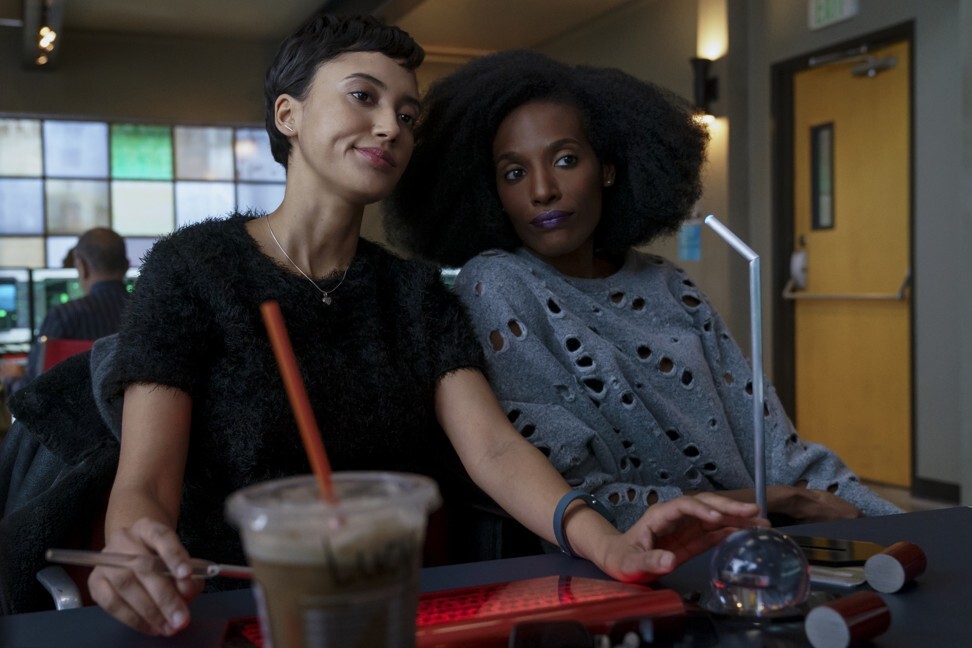
The showdown is coming in The King: Eternal Monarch, but is the series living up to its promise?
- The K-drama, which arrived on Netflix in April to much fanfare, is fast approaching its climax
- Who will triumph – in love and in which of the parallel realms – is soon to be decided
Much fanfare accompanied the global debut of Netflix’s recent star signing, South Korea’s The King: Eternal Monarch. As series one nears the climax of its 16-show run, has the dimension-busting, science-fiction fantasy romance fulfilled its early promise?
Going straight into many a first-choice viewing line-up, The King arrived with a bloody flourish, the monarch being cut down by his envious half-brotherin a burst of Hamlet-inspired regicide.
Next came parallel worlds thrown open by demons, a love triangle or two and potentially a bit of a square in the shape of new king Lee Gon (Lee Min-ho), out to avenge his slaughtered father but aloof in his burgeoning relationship with detective Jung Tae-eul (Kim Go-eun). It must be difficult trying to keep a girl interested when you’re forever nipping back to your other universe and she’s suspicious of your social diary.
All this started with a spat concerning a magic flute that ultimately was less the pipe of peace advertised than a war trumpet, hence the massing of armies across the supernatural divide and the face-off between the king and the traitor. And with most main characters playing two roles in different worlds, the narrative has sprawled and swerved – making a whole-series binge-watch (or re-watch) the best option.
As for the climax: the good-versus-evil eternal storm is coming.
Amazon Prime’s Upload provides wry commentary on our digital dependence
So this is what paradise looks like. One version of it, anyhow. Welcome to Upload (Amazon Prime, series one now streaming). More specifically, welcome to Lakeview.
Lakeview is brought to you by virtual-reality company Horizen and provides everything you need when you’re dead: illusory grand European-style hotel, fake lake, imaginary food, avatars of unlimited choice and the voice of the almighty all around you – an almighty that actually answers when called.
This is not the afterlife as envisaged by Ricky Gervais, but as experienced by the recently deceased and “reborn” Nathan Brown (Robbie Amell), rubbed out after a crash in a self-driving car (and those things are supposedly safe?) in 2033.
Lampooning dollar-driven American health care, andcapitalism generally, creator Greg Daniels, of Parks and Recreation repute, has Nathan choosing the commercial death option (“upload”) in hospital instead of going to the ER. This is thanks to pressure from a Horizen sales rep and Nathan’s ditsy girlfriend (who’s perhaps smarter than we think) so they can be together eternally and remain in touch by live chat even before she reaches the hereafter. Ahh!

Nathan’s consciousness is uploaded to a digitised version of himself, which regrettably means the termination of the original, carbon-based model. And that is going to cause problems when electronic Nathan wants to get it on with the “angel” appointed to be his spirit guide in the great commercialised beyond (where holograms sell chewing gum, certain premium activities cost extra, you need an app and data packages for just about everything and you still can’t cheat the minibar).
She is the warm-hearted, vulnerable yet perennially cool Nora Antony (Andy Allo, formerly a singer-guitarist with Prince), who may be the key to the resolution of this satirical comedic mystery science-fiction romance.
From her screen and virtual-reality headset in the real world, Nora controls Nathan’s environment and occasionally pops into it. Both are disappointed and disillusioned with their lot, but one is a person, the other an upload.
It’s a wry comment on how we don’t really exist unless through a screen (and you can forget “privacy mode”, because there’s always someone watching). So do we live virtually, or do we virtually live?

